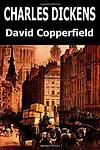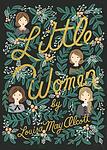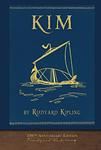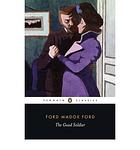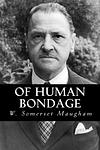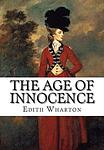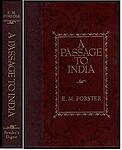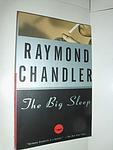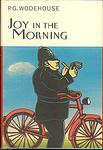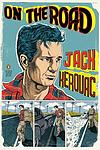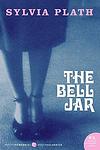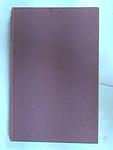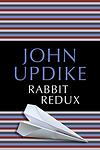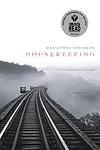100 Best Novels Written in English
This is one of the 284 lists we use to generate our main The Greatest Books list.
-
Pilgrim's Progress by John Bunyan
This Christian allegory follows a man named Christian on his journey from his hometown, the "City of Destruction," to the "Celestial City" on Mount Zion. Christian faces numerous obstacles and temptations along the way, including the Slough of Despond, Vanity Fair, and the Valley of the Shadow of Death. The narrative serves as a metaphor for the believer's journey from sin and despair to salvation and eternal life.
-
Robinson Crusoe by Daniel Defoe
The book is a classic adventure novel about a man who spends 28 years on a remote tropical island near Trinidad, encountering cannibals, captives, and mutineers before being rescued. The story is noted for its realistic portrayal of the protagonist's physical and psychological development and for its detailed depiction of his attempts to create a life for himself in the wilderness. The novel has been interpreted as an allegory for the development of civilization, as well as a critique of European colonialism.
-
Gulliver's Travels by Jonathan Swift
This classic satire follows the travels of a surgeon and sea captain who embarks on a series of extraordinary voyages. The protagonist first finds himself shipwrecked on an island inhabited by tiny people, later discovers a land of giants, then encounters a society of intelligent horses, and finally lands on a floating island of scientists. Through these bizarre adventures, the novel explores themes of human nature, morality, and society, offering a scathing critique of European culture and the human condition.
-
Clarissa by Samuel Richardson
The novel revolves around the beautiful and virtuous Clarissa Harlowe, a young woman from a wealthy family who is pursued by the villainous Robert Lovelace. Despite her attempts to maintain her virtue and independence, she is tricked into running away with Lovelace and is subsequently held against her will. Lovelace's relentless pursuit and Clarissa's steadfast resistance culminate in her tragic end, making the novel a complex exploration of power, morality, and the vulnerability of women in society.
-
Tom Jones by Henry Fielding
This classic novel tells the story of Tom Jones, a charming and good-hearted but impulsive young man, who is expelled from his adoptive family home due to his wild behavior and love for the beautiful Sophia Western. His journey through 18th-century England is filled with adventures, misadventures, and a colorful cast of characters, as he struggles with his identity and seeks redemption. The narrative explores themes of class, virtue, and morality, and is known for its humor, social satire, and vivid characterization.
-
Tristram Shandy by Laurence Sterne
The novel is a humorous, rambling narrative that chronicles the life of Tristram Shandy. The story is filled with digressions, anecdotes, and eccentric characters, as Tristram often interrupts his own tale to interject commentary or to recount stories from his family's past. Despite the seemingly haphazard structure, the novel is a clever exploration of narrative form and a satirical critique of traditional biographies and novels.
-
Emma by Jane Austen
The novel revolves around Emma, a well-meaning but disaster-prone matchmaker, who ignores her own romantic feelings while setting out to find a suitor for her friend Harriet. Her efforts cause more problems than solutions as she leaves a trail of mishaps behind her. As her plans go awry, Emma realizes that she herself may be the one in love. The book is a classic exploration of social manners, love, and marriage in 19th-century England.
-
Frankenstein by Mary Shelley
This classic novel tells the story of a young scientist who creates a grotesque but sentient creature in an unorthodox scientific experiment. The scientist, horrified by his creation, abandons it, leading the creature to seek revenge. The novel explores themes of ambition, responsibility, guilt, and the potential consequences of playing God.
-
Nightmare Abbey by Thomas Love Peacock
"Nightmare Abbey" is a satirical novel that explores the world of the romantic movement in British literature. The story revolves around a melancholic young man who lives in a gloomy mansion, which serves as a gathering place for many of his eccentric friends. The protagonist's romantic woes and his friends' philosophical debates, which often mock the prevailing intellectual trends of the day, form the crux of the narrative. The novel humorously critiques the romantic ideals of love and heroism while also providing a social commentary on the intellectual pretensions of the era.
-
The Narrative of Arthur Gordon Pym by Edgar Allan Poe
This novel follows the adventures and misadventures of Arthur Gordon Pym, who stows away on a whaling ship called the Grampus. After a mutiny on board, Pym and a few others survive and they journey further south, encountering bizarre creatures and civilizations, including a tribe of black-skinned natives on an island near the South Pole. The book ends abruptly, leaving Pym's fate unknown. The narrative is a mix of adventure, horror, and exploration, with elements of symbolism and metaphysics.
-
Sybil: Or The Two Nations by Benjamin Disraeli
"Sybil: Or The Two Nations" is a social and political novel that explores the dire conditions of the working class in England during the industrial revolution. The narrative follows the lives of two main characters from vastly different social backgrounds - Charles, a wealthy aristocrat, and Sybil, a poor yet noble woman. Their love story unfolds amidst the backdrop of societal unrest and class struggle, ultimately highlighting the vast divide between the rich and the poor, or the 'two nations'.
-
Jane Eyre by Charlotte Bronte
The novel follows the life of Jane Eyre, an orphan who is mistreated by her relatives and sent to a charity school. As she grows up, Jane becomes a governess at Thornfield Hall, where she falls in love with the brooding and mysterious Mr. Rochester. However, she soon learns of a dark secret in his past that threatens their future together. The story is a profound exploration of a woman's self-discovery and her struggle for independence and love in a rigid Victorian society.
-
Wuthering Heights by Emily Brontë
This classic novel is a tale of love, revenge and social class set in the Yorkshire moors. It revolves around the intense, complex relationship between Catherine Earnshaw and Heathcliff, an orphan adopted by Catherine's father. Despite their deep affection for each other, Catherine marries Edgar Linton, a wealthy neighbor, leading Heathcliff to seek revenge on the two families. The story unfolds over two generations, reflecting the consequences of their choices and the destructive power of obsessive love.
-
Vanity Fair by William Makepeace Thackeray
This classic novel follows the lives of two contrasting women, the cunning and ruthless Becky Sharp and the sweet and naive Amelia Sedley, against the backdrop of English society during the Napoleonic Wars. The book is a satirical exploration of the obsession with wealth, status, and social climbing, and the moral bankruptcy that can result from such pursuits. The narrative weaves an intricate tale of love, betrayal, and redemption, exposing the vanity and hypocrisy of high society.
-
David Copperfield by Charles Dickens
This novel follows the life of its titular protagonist from his childhood to maturity. Born to a young widow, David endures a difficult childhood when his mother remarries a harsh and abusive man. After his mother's death, he is sent to a boarding school before being forced into child labor. As he grows, David experiences hardship, love, and loss, all the while meeting a colorful array of characters. The novel is a journey of self-discovery and personal growth, showcasing the harsh realities of 19th-century England.
-
The Scarlet Letter by Nathaniel Hawthorne
Set in 17th-century Puritan Boston, this novel tells the story of a woman who conceives a daughter through an affair and struggles to create a new life of repentance and dignity. She is forced to wear a scarlet "A" on her dress as a sign of her adultery while her lover, a revered local minister, remains unnamed and unpunished. Throughout the book, themes of sin, legalism, and guilt are explored.
-
Moby Dick by Herman Melville
The novel is a detailed narrative of a vengeful sea captain's obsessive quest to hunt down a giant white sperm whale that bit off his leg. The captain's relentless pursuit, despite the warnings and concerns of his crew, leads them on a dangerous journey across the seas. The story is a complex exploration of good and evil, obsession, and the nature of reality, filled with rich descriptions of whaling and the sea.
-
Alice's Adventures in Wonderland by Lewis Carroll
This novel follows the story of a young girl named Alice who falls down a rabbit hole into a fantastical world full of peculiar creatures and bizarre experiences. As she navigates through this strange land, she encounters a series of nonsensical events, including a tea party with a Mad Hatter, a pool of tears, and a trial over stolen tarts. The book is renowned for its playful use of language, logic, and its exploration of the boundaries of reality.
-
The Moonstone by Wilkie Collins
"The Moonstone" is a detective novel that revolves around a large, valuable yellow diamond that was stolen from an Indian temple and is now in England. The diamond is bequeathed to a young woman on her eighteenth birthday, but is stolen that same night. The novel follows the investigation of the theft, which is complicated by a series of confusing events and false leads. The resolution involves the unraveling of a tangled web of deception, crime, and colonial guilt.
-
Little Women by Louisa May Alcott
This classic novel follows the lives of the four March sisters - Meg, Jo, Beth, and Amy - as they navigate the challenges and joys of adolescence and adulthood in 19th century New England. As they grow, they grapple with issues of poverty, gender roles, love, and personal identity, each in her own unique way. The story is a testament to the power of family, sisterhood, and female resilience in a time of societal constraints.
-
Middlemarch by George Eliot
Set in the fictitious English town of Middlemarch during the early 19th century, the novel explores the complex web of relationships in a close-knit society. It follows the lives of several characters, primarily Dorothea Brooke, a young woman of idealistic fervor, and Tertius Lydgate, an ambitious young doctor, who both grapple with societal expectations, personal desires, and moral dilemmas. Their stories intertwine with a rich tapestry of other townsfolk, reflecting themes of love, marriage, ambition, and reform, making a profound commentary on the human condition.
-
The Way We Live Now by Anthony Trollope
The book is a satirical analysis of the moral corruption in London during the 1870s. It centers around Augustus Melmotte, a fraudulent financier, who moves his family to London in an attempt to climb the social ladder. His daughter, Marie, falls in love with Sir Felix Carbury, a penniless playboy, while his wife is desperate to be accepted into London society. The book explores themes of wealth, power, love, and greed, and is a biting critique of the era's obsession with status and money.
-
The Adventures of Huckleberry Finn by Mark Twain
The novel follows the journey of a young boy named Huckleberry Finn and a runaway slave named Jim as they travel down the Mississippi River on a raft. Set in the American South before the Civil War, the story explores themes of friendship, freedom, and the hypocrisy of society. Through various adventures and encounters with a host of colorful characters, Huck grapples with his personal values, often clashing with the societal norms of the time.
-
Kidnapped by Robert Louis Stevenson
This adventure novel follows the journey of a young Scottish man, David Balfour, who is tricked by his uncle and sold into slavery. After being shipwrecked, he partners with a Jacobite rebel, Alan Breck Stewart, and they journey across the Scottish Highlands, evading authorities and battling foes. Throughout the narrative, themes of justice, friendship, and courage are explored, set against the backdrop of 18th-century Scottish politics.
-
Three Men in a Boat by Jerome K. Jerome
Three Men in a Boat is a comedic account of a two-week boating holiday on the Thames River from Kingston upon Thames to Oxford and back to Kingston. The story follows three friends and a dog who decide to take a trip to cure their hypochondriac symptoms. The journey is filled with humorous incidents, historical digressions, and comical misunderstandings. Despite their initial intentions, the trio's holiday turns into a series of misadventures, providing a light-hearted commentary on the English upper-middle class at the end of the 19th century.
-
The Sign of Four by Arthur Conan Doyle
This classic detective novel follows the brilliant investigator and his loyal friend as they tackle a complex case involving a stolen treasure, a secret pact among four convicts and two mismatched allies, a wooden-legged man and a dwarf. The story, set in 19th century London, is a thrilling tale of mystery, murder, and a beautiful woman's desperate plea for help, which leads them on a high-speed chase through the city's murky backstreets and bustling river docks. The duo's deductive skills are tested to the limit in this multi-layered narrative that explores themes of justice, betrayal, and the destructive power of greed.
-
The Picture of Dorian Gray by Oscar Wilde
The novel follows the life of a handsome young man who, after having his portrait painted, is upset to realize that the painting will remain beautiful while he ages. After expressing a wish that the painting would age instead of him, he is shocked to find that his wish comes true. As he indulges in a life of hedonism and immoral acts, his portrait becomes increasingly grotesque, reflecting the damage his actions have on his soul. The story serves as a cautionary tale about the dangers of vanity, selfishness, and the pursuit of pleasure without regard for consequences.
-
New Grub Street: A Novel by George Gissing
"New Grub Street" is a novel set in the literary and journalistic circles of 1880s London. The story revolves around two writers, one who seeks wealth and status and the other who values artistic integrity over material success. It provides a stark and realistic portrayal of the struggles faced by writers, including financial hardship, the pressure to compromise artistic integrity for commercial success, and the destructive effects of these pressures on personal relationships and mental health. The book is a critique of the commercialization of literature and journalism during the period, and a commentary on the conflict between art and commerce.
-
Jude the Obscure by Thomas Hardy
This novel tells the story of Jude Fawley, a working-class young man who dreams of becoming a scholar. The traditional class structure in 19th-century England prevents him from realizing his dream and his only solace is his love for his cousin, Sue Bridehead. Their scandalous relationship and the tragic events that follow form the heart of the narrative, which explores themes of love, class, religion, and morality.
-
The Red Badge of Courage by Stephen Crane
"The Red Badge of Courage" is a novel set during the American Civil War, focusing on a young private in the Union Army who flees from the field of battle. Overcome with shame, he longs for a wound, a "red badge of courage," to counteract his cowardice. When his regiment once again faces the enemy, he acts as the standard-bearer, proving his courage. The book explores the themes of heroism, manhood, and the illusion versus reality of war.
-
Dracula by Bram Stoker
This classic horror novel tells the story of Count Dracula's attempt to move from Transylvania to England so that he may find new blood and spread the undead curse, and of the battle between Dracula and a small group of people led by Professor Abraham Van Helsing. The narrative is composed of journal entries, letters, and telegrams written by the novel's protagonists, providing different perspectives on the gruesome events unfolding. The book touches on themes of sexuality, gender roles, and the clash of modern science with traditional superstition.
-
Heart of Darkness by Joseph Conrad
This classic novel follows the journey of a seaman who travels up the Congo River into the African interior to meet a mysterious ivory trader. Throughout his journey, he encounters the harsh realities of imperialism, the brutal treatment of native Africans, and the depths of human cruelty and madness. The protagonist's journey into the 'heart of darkness' serves as both a physical exploration of the African continent and a metaphorical exploration into the depths of human nature.
-
Sister Carrie by Theodore Dreiser
The novel follows a young country girl who moves to the big city where she starts realizing her own American Dream by first becoming a mistress to men she perceives as superior and later as a famous actress. It is a portrayal of the realities of the modern city and the complexities of the modern world, illustrating the influence of consumer culture on the individual. Despite her moral decline, the protagonist's rise to fame seems to defy the conventional social norms and moral values, making the novel a notable instance of naturalist literature.
-
Kim by Rudyard Kipling
"Kim" is a thrilling adventure set in India during the height of the British empire. The story follows the life of a young Irish orphan, Kimball O'Hara, who grows up on the streets of Lahore. Kim's life takes a dramatic turn when he becomes involved in the 'Great Game', the political conflict between Russia and Britain in Central Asia. Guided by an old Tibetan Lama on a spiritual quest, Kim is recruited by the British secret service and sent on a dangerous mission across the Himalayas. The novel explores themes of identity, imperialism, and East vs. West.
-
The Call of the Wild by Jack London
This book tells the story of a domesticated dog named Buck who is stolen from his home in California and sold into service as a sled dog in Alaska. As he faces harsh conditions and brutal treatment, Buck must learn to adapt to the wild and harsh environment, ultimately reverting to his ancestral instincts in order to survive. The book explores themes of nature versus nurture, civilization versus wilderness, and the struggle for dominance.
-
The Golden Bowl by Henry James
The Golden Bowl is a complex narrative that revolves around an American woman and her daughter who marry a father and son. The daughter's husband previously had a romantic relationship with the mother's husband, leading to a tense and intricate web of relationships. The novel explores themes of marriage, adultery, and familial bonds, and is renowned for its detailed characterization and intricate plot structure.
-
Hadrian the Seventh by Frederick Rolfe
"Hadrian the Seventh" is a novel about a failed Catholic priest, who after a series of unlikely events, becomes the Pope. The protagonist, a bitter and eccentric man, uses his newfound power to make radical changes in the Church, while also settling personal scores. The novel is known for its biting satire and unique exploration of the Catholic Church and papacy.
-
The Wind in the Willows by Kenneth Grahame
"The Wind in the Willows" is a charming tale about the adventures of four anthropomorphic animal friends - Mole, Rat, Badger, and the rebellious and extravagant Toad. The story is set in the idyllic English countryside and explores themes of friendship, exploration, and respect for nature. The narrative is marked by Toad's reckless behavior, his obsession with motor cars, and his eventual redemption. The other characters, with their contrasting personalities, bring balance and depth to the story.
-
Zuleika Dobson by Max Beerbohm
"Zuleika Dobson" is a satirical novel set at Oxford University, where the beautiful Zuleika, a conjurer by profession, arrives and captivates the male population, including the Duke of Dorset. The Duke falls madly in love with her, but she remains indifferent to his feelings. In a tragic twist, the Duke decides to commit suicide to prove his love, starting a chain reaction among other male students. The novel is a critique of Edwardian Oxford and the foolishness of falling victim to unrequited love.
-
The History of Mr. Polly by H. G. Wells
"The History of Mr. Polly" is a comedic novel that tells the story of Alfred Polly, a man dissatisfied with his life and marriage. After faking his death in a fire, he leaves his wife and shop behind to start a new life. He eventually finds peace and contentment working as an assistant to a man who runs a country inn. The book explores themes of self-discovery, the struggle against societal expectations, and the pursuit of happiness.
-
The Good Soldier by Ford Madox Ford
"The Good Soldier" is a tragic tale of two seemingly perfect couples: an American couple and an English couple, who meet at a German spa and share a nine-year friendship. However, underneath the surface, their relationships are far from ideal, filled with infidelity, lies, and deceit. The story is narrated by the American husband, who is the last to realize the intricate web of affairs and betrayals amongst the group. The novel explores themes of love, passion, and the destruction that can result from suppressed emotions and societal pressures.
-
The Thirty-Nine Steps by John Buchan
Set on the eve of World War I, the novel follows an ordinary man who becomes entangled in a dangerous plot after a mysterious stranger shows up at his apartment, claiming to be a spy. When the stranger is murdered, the protagonist is falsely accused and becomes a fugitive, fleeing to the Scottish highlands. He must unravel a conspiracy of international espionage and prevent a political assassination to clear his name.
-
The Rainbow by D. H. Lawrence
The novel explores the lives of three generations of a farming family, the Brangwens, living in rural England in the late 19th and early 20th century. The narrative primarily focuses on the sexual and emotional maturation of Ursula Brangwen, a young woman who rejects traditional societal norms in her quest for spiritual fulfillment and personal independence. The book is known for its vivid depiction of the English countryside and its frank portrayal of sexual desire.
-
Of Human Bondage by W. Somerset Maugham
The novel follows the life of Philip Carey, a club-footed orphan who struggles with his disability and his passionate and unrequited love for a destructive woman. His journey takes him from a strict religious upbringing in England to an adventurous life in Paris where he attempts to become an artist before finally settling into a career in medicine. The story is a powerful exploration of human desire, ambition, and the search for meaning in life.
-
The Age of Innocence by Edith Wharton
Set in the 1870s, the novel revolves around Newland Archer, a young lawyer from New York's high society, who is engaged to the beautiful and conventional May Welland. His life takes a turn when he meets May's cousin, the Countess Ellen Olenska, who has returned from Europe after leaving her scandalous husband. Torn between his duty and passion, Archer struggles with the constraints of the society he is a part of. The book offers a vivid portrayal of the struggle between individual desires and societal expectations in the upper-class New York society of the late 19th century.
-
Ulysses by James Joyce
Set in Dublin, the novel follows a day in the life of Leopold Bloom, an advertising salesman, as he navigates the city. The narrative, heavily influenced by Homer's Odyssey, explores themes of identity, heroism, and the complexities of everyday life. It is renowned for its stream-of-consciousness style and complex structure, making it a challenging but rewarding read.
-
Babbitt by Sinclair Lewis
"Babbitt" is a satirical novel that explores the life of a prosperous, middle-aged businessman living in a Midwestern city during the 1920s. Despite his apparent success and conformity to societal norms, the protagonist feels a deep dissatisfaction with his life and the monotony of his daily routines. This leads him to rebel against the conservative values of his community, resulting in personal and social upheaval. The book critically examines the American middle class and the pressures of conformism, materialism, and status anxiety.
-
A Passage to India by E. M. Forster
The novel takes place in British-ruled India, where the cultural divide between the British and the Indians is explored. The story focuses on the experiences of an Indian Muslim, Dr. Aziz, and his interactions with an English woman, Miss Quested, and her elderly friend, Mrs. Moore. After an expedition to the Marabar Caves, Miss Quested accuses Dr. Aziz of assault, leading to a trial that deepens the racial tensions and prejudices between the colonizers and the colonized. The novel is a critique of British imperialism and a study of the cultural and racial misunderstandings and ill-will between the British and the Indian people.
-
Gentlemen Prefer Blondes: The Illuminating Diary of a Professional Lady by Anita Loos
This book is a satirical novel that follows the adventures of a blonde flapper named Lorelei Lee, who uses her looks and charm to climb the social ladder. Lorelei, originally from Little Rock, Arkansas, is a materialistic and somewhat naive woman, who values men for their wealth and status. The story, presented as Lorelei's diary, humorously explores themes of gender, class, and the American pursuit of wealth and status in the early 20th century.
-
Mrs. Dalloway by Virginia Woolf
The novel chronicles a day in the life of Clarissa Dalloway, a high-society woman in post-World War I England, as she prepares for a party she is hosting that evening. Throughout the day, she encounters various characters from her past, including a former suitor and a shell-shocked war veteran. The narrative jumps back and forth in time and in and out of different characters' minds, exploring themes of mental illness, existentialism, and the nature of time.
-
The Great Gatsby by F. Scott Fitzgerald
Set in the summer of 1922, the novel follows the life of a young and mysterious millionaire, his extravagant lifestyle in Long Island, and his obsessive love for a beautiful former debutante. As the story unfolds, the millionaire's dark secrets and the corrupt reality of the American dream during the Jazz Age are revealed. The narrative is a critique of the hedonistic excess and moral decay of the era, ultimately leading to tragic consequences.
-
The Sun Also Rises by Ernest Hemingway
The novel is a poignant tale set in the 1920s post-World War I era, focusing on a group of American and British expatriates living in Paris who travel to Pamplona, Spain for the annual Running of the Bulls. The story explores themes of disillusionment, identity, and the Lost Generation, with the protagonist, a war veteran, grappling with impotence caused by a war injury. The narrative is steeped in the disillusionment and existential crisis experienced by many in the aftermath of the war, and the reckless hedonism of the era is portrayed through the characters' aimless wanderings and excessive drinking.
-
Lolly Willowes by Sylvia Townsend Warner
A middle-aged spinster, after spending her life caring for others, decides to break free from societal expectations by moving to a small village in the countryside. There, she discovers her true identity as a witch and finds contentment in her newfound independence and connection with nature. The novel is a feminist critique of the limited roles available to women in early 20th-century England and a celebration of female autonomy and non-conformity.
-
The Maltese Falcon by Dashiell Hammett
This classic detective novel follows a private investigator who is hired by a mysterious woman to track down her missing sister. The case quickly becomes complicated when the investigator is caught up in a dangerous hunt for a priceless artifact, the Maltese Falcon. As he navigates a world of treachery, deceit, and murder, he must use his wit and courage to outsmart his enemies and solve the mystery.
-
As I Lay Dying by William Faulkner
The narrative unfolds through the eyes of 15 different characters over 59 chapters. It is the story of the death of Addie Bundren and her poor, rural family's quest and motivations—noble or selfish—to honor her wish to be buried in her hometown of Jefferson, Mississippi. As the Bundren family undertakes a journey to fulfill Addie's last wish, they face many hardships and personal revelations. The novel explores themes of existentialism, death, and the nature of family relationships.
-
Brave New World by Aldous Huxley
Set in a dystopian future, the novel explores a society where human beings are genetically bred and pharmaceutically conditioned to serve in a ruling order. The society is divided into five castes, each with its specific roles. The narrative follows a savage who rejects the norms of this new world order and struggles to navigate the clash between the values of his upbringing and the reality of this technologically advanced, emotionless society. His resistance prompts a deep examination of the nature of freedom, individuality, and happiness.
-
Cold Comfort Farm by Stella Gibbons
When a young, sophisticated woman is suddenly orphaned and left penniless, she decides to live with her eccentric relatives on their rundown farm. Using her urban sensibilities and wit, she sets about bringing order to the chaos and improving the lives of her relatives. Through her efforts, she manages to transform the gloomy, grim farm into a place of happiness and productivity. This novel is a hilarious parody of romantic, pastoral novels and is filled with eccentric characters and absurd situations.
-
Nineteen Nineteen by John Dos Passos
"Nineteen Nineteen" is the second novel in a trilogy that explores the social and political changes in the United States during the early 20th century. It uses a unique narrative style that blends traditional storytelling with newspaper clippings, song lyrics, and biographies of historical figures. The book focuses on the year 1919, a time of significant upheaval in America and abroad, and follows a diverse group of characters as they navigate these tumultuous times.
-
Tropic of Cancer by Henry Miller
The book is a semi-autobiographical novel set in 1930s Paris and describes the protagonist's life as a struggling writer. The narrative is filled with vivid descriptions of the city, sexual encounters, and philosophical musings, all penned in a stream-of-consciousness style. The protagonist's experiences living in poverty, his relationships with other expatriates, and his pursuit of artistic freedom are central to the story. Despite the explicit content, the novel is noted for its candid exploration of the human condition and the author's quest for personal and creative authenticity.
-
Scoop by Evelyn Waugh
"Scoop" is a satirical novel that explores the world of journalism through the lens of an accidental war correspondent. The protagonist, a nature columnist, is mistakenly sent to cover a war in Africa due to a mix-up at a newspaper office. The book humorously depicts his struggles and mishaps as he navigates the chaotic world of war reporting, providing a critique of sensationalist journalism and the often absurd nature of international news.
-
Murphy by Samuel Beckett
The novel explores the life of the titular character, a disaffected and detached man living in London who prefers the realm of his own thoughts to the real world. After securing a job as a nurse at a mental institution, he becomes increasingly detached from reality. The narrative also delves into his relationships with various other characters, including his fiancée, his best friend and a prostitute. The book is known for its dark humor and its exploration of themes such as existentialism and the nature of human consciousness.
-
The Big Sleep by Raymond Chandler
In this classic detective novel, a private investigator is hired by a wealthy family to resolve a blackmail issue involving the younger daughter. As he delves deeper into the case, he uncovers a web of deceit, murder, and organized crime. The detective's investigation is further complicated by his growing attraction to the older daughter, adding a layer of personal involvement to an already complex case. The novel is renowned for its gritty depiction of 1930s Los Angeles and its sharp, witty dialogue.
-
Party Going by Henry Green
"Party Going" is a novel that centers around a group of wealthy, self-absorbed young people waiting for a train to take them to the French Riviera. Their journey is delayed by heavy fog, forcing them to take up residence in a nearby hotel. As they interact with each other and the hotel staff, their shallow, self-involved natures are revealed. The novel explores themes of class, privilege, and the emptiness of a life lived only for pleasure.
-
At Swim Two-Birds by Flann O'Brien
This novel is a complex, metafictional work that weaves together three separate narratives. The first is about a lazy, hard-drinking college student living with his uncle, the second is about a devilish Pooka and a loquacious old man, and the third is about a fictional character named Finn who seeks revenge on his author for creating him poorly. The narratives eventually intersect in a unique and humorous way, challenging traditional ideas of story structure and character autonomy.
-
The Grapes of Wrath by John Steinbeck
The book follows the Joad family, Oklahoma farmers displaced from their land during the Great Depression. The family, alongside thousands of other "Okies," travel to California in search of work and a better life. Throughout their journey, they face numerous hardships and injustices, yet maintain their humanity through unity and shared sacrifice. The narrative explores themes of man's inhumanity to man, the dignity of wrath, and the power of family and friendship, offering a stark and moving portrayal of the harsh realities of American migrant laborers during the 1930s.
-
Joy in the Morning by P. G. Wodehouse
"Joy in the Morning" is a comedic novel set in the 1920s that revolves around the life of a wealthy, idle young man and his valet. The protagonist often finds himself in complicated situations due to his romantic entanglements, friendships, and his aunt's demands. However, his clever valet is always there to help him out of these predicaments. The story is filled with humor, wit, and classic British charm.
-
All the King's Men by Robert Penn Warren
"All the King's Men" is a political drama that revolves around the rise and fall of a Southern governor, loosely based on Louisiana's Huey Long. The story is narrated by a journalist who becomes the governor's right-hand man, offering an inside perspective on the political machinations, corruption, and personal tragedies that accompany the governor's climb to power. The novel explores themes of power, corruption, and the moral consequences of political ambition.
-
Under the Volcano by Malcolm Lowry
Set in Mexico on the Day of the Dead in 1938, the novel follows the last day in the life of Geoffrey Firmin, a British consul with a severe alcohol addiction. Through his interactions with his estranged wife and half-brother, the book explores themes of despair, betrayal, and the destructive power of addiction, against the backdrop of political and social unrest. The impending eruption of the nearby volcano serves as a metaphor for Firmin's deteriorating mental state and the looming world war.
-
The Heat of the Day by Elizabeth Bowen
Set in London during World War II, "The Heat of the Day" is a story about a love triangle between Stella Rodney, her lover Robert Kelway, and Harrison, a man who claims to be an intelligence agent. Harrison informs Stella that Robert is selling secrets to the enemy, and in exchange for his silence, he wants Stella all to himself. The novel explores themes of trust, deceit, and the complexities of love against the backdrop of a city under siege.
-
Nineteen Eighty Four by George Orwell
Set in a dystopian future, the novel presents a society under the total control of a totalitarian regime, led by the omnipresent Big Brother. The protagonist, a low-ranking member of 'the Party', begins to question the regime and falls in love with a woman, an act of rebellion in a world where independent thought, dissent, and love are prohibited. The novel explores themes of surveillance, censorship, and the manipulation of truth.
-
The End of the Affair by Graham Greene
Set in London during and just after World War II, the novel revolves around a love affair between Maurice Bendrix, a writer, and Sarah Miles, the wife of a civil servant. The story is narrated by Bendrix, who is obsessed with Sarah and hires a private investigator to follow her when he suspects she's having another affair. The novel explores themes of love, hate, and the existence of God, with Sarah's faith playing a significant role in the narrative.
-
The Catcher in the Rye by J. D. Salinger
The novel follows the story of a teenager named Holden Caulfield, who has just been expelled from his prep school. The narrative unfolds over the course of three days, during which Holden experiences various forms of alienation and his mental state continues to unravel. He criticizes the adult world as "phony" and struggles with his own transition into adulthood. The book is a profound exploration of teenage rebellion, alienation, and the loss of innocence.
-
The Adventures of Augie March by Saul Bellow
"The Adventures of Augie March" is a novel set in Chicago during the Great Depression. The story follows the life of Augie March, a poor but spirited boy growing up in a broken home, as he navigates his way through life. The narrative explores his various jobs, relationships, and adventures, as he constantly seeks his identity and place in the world. His journey is marked by a series of encounters with different people and experiences, each shaping him in unique ways.
-
Lord of the Flies by William Golding
A group of British boys are stranded on an uninhabited island after their plane crashes during wartime. Initially, they attempt to establish order, creating rules and electing a leader. However, as time passes, their civility erodes, and they descend into savagery and chaos. The struggle for power intensifies, leading to violence and death. The novel explores themes of innocence, the inherent evil in mankind, and the thin veneer of civilization.
-
Lolita by Vladimir Nabokov
The novel tells the story of Humbert Humbert, a man with a disturbing obsession for young girls, or "nymphets" as he calls them. His obsession leads him to engage in a manipulative and destructive relationship with his 12-year-old stepdaughter, Lolita. The narrative is a controversial exploration of manipulation, obsession, and unreliable narration, as Humbert attempts to justify his actions and feelings throughout the story.
-
On the Road by Jack Kerouac
This novel follows the story of a young man and his friend as they embark on a series of cross-country road trips across America during the late 1940s and early 1950s. The protagonist, driven by a desire for freedom and a quest for identity, encounters a series of eccentric characters and experiences the highs and lows of the Beat Generation. The narrative is a testament to the restlessness of youth and the allure of adventure, underscored by themes of jazz, poetry, and drug use.
-
Voss by Patrick White
Set in 19th-century Australia, the novel follows a German explorer, Voss, as he leads a doomed expedition into the outback. Parallel to this, Voss develops a romantic relationship with Laura Trevelyan, a young woman he meets before his departure. Despite their physical separation, their spiritual and emotional connection deepens as Voss's journey becomes increasingly perilous. The narrative explores themes of obsession, the human condition, and the dichotomy between civilization and wilderness.
-
To Kill a Mockingbird by Harper Lee
Set in the racially charged South during the Depression, the novel follows a young girl and her older brother as they navigate their small town's societal norms and prejudices. Their father, a lawyer, is appointed to defend a black man falsely accused of raping a white woman, forcing the children to confront the harsh realities of racism and injustice. The story explores themes of morality, innocence, and the loss of innocence through the eyes of the young protagonists.
-
The Prime of Miss Jean Brodie by Muriel Spark
The novel is set in 1930s Edinburgh and follows the story of six girls under the tutelage of an unconventional teacher, Miss Jean Brodie. Miss Brodie, in her prime, takes it upon herself to educate the girls about life, love, politics, and art, often disregarding the traditional curriculum. The narrative explores the influence of Miss Brodie on the girls, the consequences of her nonconformist teachings, and the ultimate betrayal that leads to her downfall.
-
Catch-22 by Joseph Heller
The book is a satirical critique of military bureaucracy and the illogical nature of war, set during World War II. The story follows a U.S. Army Air Forces B-25 bombardier stationed in Italy, who is trying to maintain his sanity while fulfilling his service requirements so that he can go home. The novel explores the absurdity of war and military life through the experiences of the protagonist, who discovers that a bureaucratic rule, the "Catch-22", makes it impossible for him to escape his dangerous situation. The more he tries to avoid his military assignments, the deeper he gets sucked into the irrational world of military rule.
-
The Golden Notebook by Doris Lessing
The novel centers around a woman named Anna Wulf, a writer who keeps four notebooks, each representing a different aspect of her life: her experiences in Africa, her current life in London, a novel she is writing, and her personal experiences. As Anna's mental state deteriorates, she attempts to unify her fragmented self in a fifth notebook, the golden notebook. The novel explores themes of mental breakdown, communism, the changing role of women, and the fear of nuclear war.
-
A Clockwork Orange by Anthony Burgess
This novel follows the life of a violent young man named Alex, who is part of a youth subculture in a dystopian future England. Alex and his gang engage in a nightmarish spree of rape, assault, and robbery, until he is arrested and subjected to a psychological experiment by the government to "cure" him of his violent tendencies. The novel explores themes of free will, morality, and the nature of evil, while using a unique slang language invented by the author.
-
A Single Man by Christopher Isherwood
"A Single Man" follows a day in the life of George, a middle-aged English professor in 1960s Southern California, who is struggling to find meaning in his life after the death of his partner, Jim. The novel explores themes of loneliness, grief, and the human condition as George navigates his daily routine, interacts with students and friends, and reflects on his past. His efforts to persist in the face of despair, while dealing with the everyday challenges of life and the societal prejudices of the time, form the crux of the narrative.
-
In Cold Blood by Truman Capote
This true crime novel tells the story of the brutal 1959 murder of a wealthy farmer, his wife and two of their children in Holcomb, Kansas. The narrative follows the investigation led by the Kansas Bureau of Investigation that ultimately leads to the capture, trial, and execution of the killers. The book explores the circumstances surrounding this horrific crime and the effects it had on the community and the people involved.
-
The Bell Jar by Sylvia Plath
The novel follows the story of a young woman who wins a guest editorship at a magazine in New York City and, after a series of personal and professional disappointments, suffers a mental breakdown and returns to her family, where she continues to struggle with depression and suicidal thoughts. The protagonist's experiences in psychiatric institutions and her attempts to reclaim her life are depicted with brutal honesty, making it a poignant exploration of mental illness and the societal pressures faced by women in the mid-20th century.
-
Portnoy's Complaint by Philip Roth
The novel is a first-person narrative, a monologue by a young Jewish man, Alexander Portnoy, who is speaking to his psychoanalyst. He shares his struggles with his identity as a Jewish man in America, his sexual fantasies and frustrations, his complex relationship with his overbearing mother, and his experiences of guilt and shame. The book uses humor and frank language to explore themes of identity, sexuality, and the Jewish experience in America.
-
Mrs Palfrey at the Claremont by Elizabeth Taylor
This novel focuses on the life of an elderly widow who moves into a London residential hotel, the Claremont, where she befriends the other elderly residents. She forms an unlikely friendship with a young writer, who she passes off as her grandson to the other residents. The story explores themes of aging, loneliness, and the complexities of human relationships.
-
Rabbit Redux by John Updike
The novel is a sequel in a series following the life of Harry "Rabbit" Angstrom, a middle-aged man living in a small Pennsylvania town. When his wife leaves him for another man, he finds himself alone and struggling to make sense of the rapidly changing world around him. In his loneliness, he takes in a young runaway and her racially divisive boyfriend, leading to a series of events that force Rabbit to confront his own prejudices and fears. The book is a vivid portrayal of the American social and political climate of the 1960s.
-
Song of Solomon by Toni Morrison
The novel explores the life of an African-American man, Macon "Milkman" Dead III, from birth to adulthood. Set against the backdrop of racial tension in the mid-20th century United States, it delves into his journey of self-discovery and understanding his heritage. As Macon embarks on a literal and figurative journey south to reconnect with his roots, he encounters various characters that help him understand his family history and the power of community. The narrative is deeply rooted in African-American folklore and mythology, offering a profound commentary on identity, personal freedom, and the destructive power of racism.
-
A Bend in the River by V. S. Naipaul
"A Bend in the River" is a novel that follows an Indian man, Salim, who moves from the East Coast of Africa to the heart of the continent to open a store in a small, remote town at a bend in the river. The book explores the changes that occur in the town as it evolves from a sleepy outpost to a bustling city. It also delves into Salim's personal struggles and the challenges he faces in adapting to a rapidly changing society, all set against the backdrop of post-colonial Africa.
-
Midnight's Children by Salman Rushdie
The novel tells the story of Saleem Sinai, who was born at the exact moment when India gained its independence. As a result, he shares a mystical connection with other children born at the same time, all of whom possess unique, magical abilities. As Saleem grows up, his life mirrors the political and cultural changes happening in his country, from the partition of India and Pakistan, to the Bangladesh War of Independence. The story is a blend of historical fiction and magical realism, exploring themes of identity, fate, and the power of storytelling.
-
Housekeeping by Marilynne Robinson
The novel explores the life of two sisters, Ruth and Lucille, who are raised by a series of relatives in a small, secluded town in Idaho after their mother's suicide. The girls' lives are profoundly affected by the eccentric and transient lifestyle of their aunt Sylvie, who becomes their guardian. The narrative delves deeply into themes of family, identity, womanhood, and the impermanence of life, ultimately leading to a divide between the sisters as they choose different paths in life.
-
Money by Martin Amis
"Money" is a darkly humorous novel that follows the life of John Self, a hedonistic, self-destructive director of commercials, as he navigates the excesses and depravities of 1980s New York and London. His life is filled with overindulgence in food, alcohol, drugs, and women, leading to a downward spiral of self-destruction. The novel is a satire on the excesses of capitalism and the obsession with wealth and materialism, and it also explores themes of identity, self-loathing, and the destructive power of addiction.
-
An Artist of the Floating World by Kazuo Ishiguro
This novel is a historical narrative set in post-World War II Japan, focusing on an aging painter who grapples with his past as a propagandist for the imperialist movement. As he navigates the rapidly changing cultural landscape, he faces criticism and ostracism for his role in promoting Japan's militaristic past. The story explores themes of guilt, regret, and the struggle for redemption, offering a nuanced examination of the personal and societal consequences of war.
-
The Beginning of Spring by Penelope Fitzgerald
Set in Moscow in 1913, the book follows the life of an English printer named Frank Reid whose wife has abruptly left him and their three children. As Frank tries to maintain his printing business and look after his children in the midst of the impending Russian Revolution, he also attempts to understand why his wife left and if she will ever return. The novel is a blend of historical fiction and family drama, exploring themes of change, uncertainty, and cultural differences.
-
Breathing Lessons by Anne Tyler
This novel revolves around a middle-aged couple, Ira and Maggie Moran, and their journey to a funeral. The story delves into their relationship dynamics, their regrets, and their hopes for the future. The narrative explores the complexities of marriage, the disappointments of parenthood, and the general trials and tribulations of life. The couple's interactions with other characters they meet along the way further illuminate their struggles and their enduring love for each other.
-
Amongst Women by John McGahern
"Amongst Women" is a novel that tells the story of Michael Moran, a bitter, aging Irish Republican Army (IRA) veteran, and his relationships with his wife and five children. The narrative explores themes of family, power, love, and the struggle between freedom and control. Moran's domineering personality and the effects of his past experiences in the IRA have a profound impact on his family, shaping their lives and relationships in complex and often destructive ways.
-
Underworld by Don DeLillo
"Underworld" is a sweeping narrative that spans from the 1950s to the end of the 20th century, exploring the interconnectedness of events and the impact of the Cold War on American society. The story revolves around a diverse group of characters, including a waste management executive, a graffiti artist, a nun, and a baseball collector, among others. These characters' lives intertwine in unexpected ways, illustrating the complex web of relationships and influences that shape our world. The novel is renowned for its vivid portrayal of historical events and its profound examination of themes such as memory, technology, and waste.
-
Disgrace by J M Coetzee
"Disgrace" is a novel that explores the life of a middle-aged professor in South Africa who is dismissed from his position after having an affair with a student. After losing his job, he moves to the countryside to live with his daughter, where they experience a violent attack that significantly alters their lives. The story delves into themes of post-apartheid South Africa, racial tension, sexual exploitation, and the struggle for personal redemption.
-
True History of the Kelly Gang by Peter Carey
This historical novel is a fictionalized account of the life of Australian outlaw Ned Kelly, told in the form of a journal written to his daughter. The narrative explores Kelly's life from childhood, his family's struggles with poverty and the law, his involvement in horse thievery, and his eventual formation of the Kelly Gang. The story culminates with the gang's infamous standoff with the police at Glenrowan, providing a humanizing perspective on a figure often portrayed as a ruthless criminal.
The Guardian, 100 Books
Respected literary critic Robert McCrum selects the definitive 100 novels written in English.
Added over 9 years ago.
This list has a weight of 46%. To learn more about what this means please visit the Rankings page.
Here is a list of what is decreasing the importance of this list:
- Voters: 1 person voted
- List: only covers 1 specific language
If you think this is incorrect please e-mail us at [email protected].














